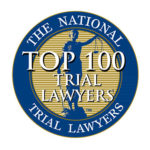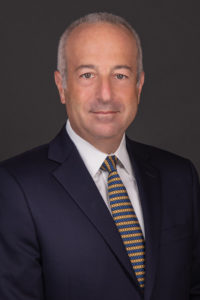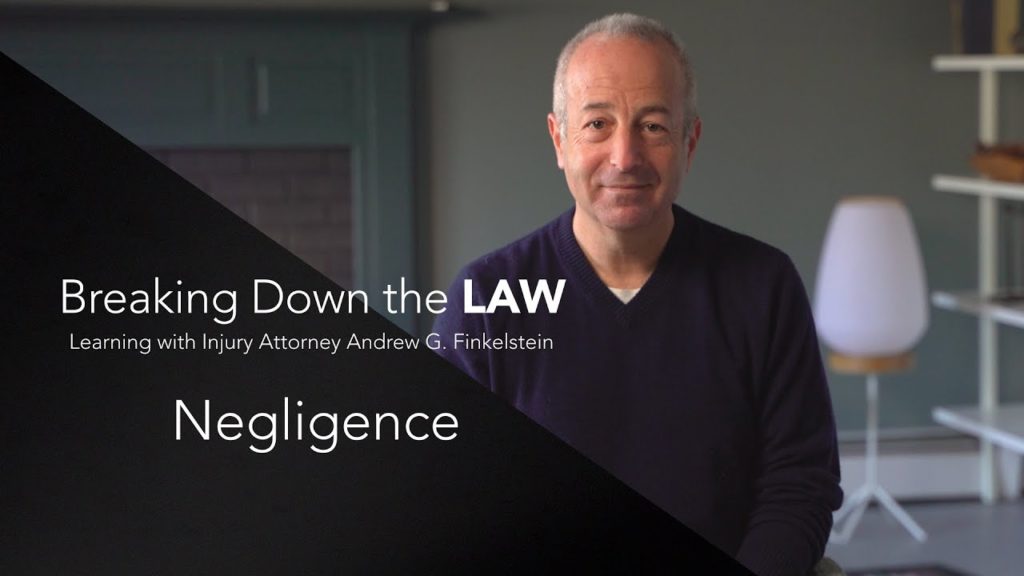Finkelstein & Partners, LLP
1279 NY-300
Newburgh, NY, 12550
(845) 420-1779
Review Us On Google
Finkelstein & Partners, LLP – Winning Serious Injury Lawsuits Since 1959

More than 600 nursing homes throughout New York provide around-the-clock skilled nursing care for many of the state’s elderly and disabled residents. While these facilities’ purpose is to provide a safe and healthy environment that maintains or improves the quality of residents’ lives, abuse and neglect injuries are common.
If nursing home abuse or neglect injured you or a loved one, an experienced New York nursing home abuse lawyer from Finkelstein & Partners can help you obtain compensation for your financial and emotional losses.
Our lawyers can explain our legal services to help you determine the best steps for your financial recovery. With more than 60 years of service to the injured in New York, we have successfully assisted thousands of personal injury claimants in obtaining the compensation they need after being injured by someone else’s failure to exercise proper care.
What Causes Nursing Home Abuse in New York?
Even before the COVID pandemic, aging New York residents were less likely to seek a nursing home placement, opting for other arrangements, including remaining at home with assistance from family members or healthcare providers.
The pandemic spurred a 15 percent decline in residents living in nursing homes, as individuals and their families witnessed horrifying media accounts of unchecked infection rates, lack of trained staff, and isolation experienced by residents across the country.
However, despite fewer people choosing a nursing home placement for themselves or an aging loved one, the problems caused by understaffed nursing home facilities across the state led lawmakers to approve new staffing mandates for nursing homes.
Trade associations representing these facilities note that 80 percent of New York nursing homes cannot meet these mandates, which include providing 3.5 hours of nursing care per resident each day, with at least 2.2 hours of care from a registered nurse or a licensed nurse practitioner. To meet these requirements, the associations say, nursing homes must hire more than 12,000 new nurses and aides.
Understaffing at a nursing home facility increases the risks of nursing home abuse and neglect for many reasons, including:
- The inability to adequately supervise all residents leads to issues such as residents wandering away from the facility or becoming injured while attempting to walk or stand without adequate assistance.
- The inability to meet the specific health and dietary needs of all residents, including knowing which residents must follow a special diet, who needs assistance to avoid falls, and the time necessary to protect residents against the development of pressure ulcers (bed sores).
- A high staff turnover can result in new staff members with improper training to care for residents without a complete grasp of the facility’s policies and procedures or the resident’s personal care plan.
- The inability to take proper infection control measures to prevent the spread of illness in the facility.
- Failure to properly vet new employees to ensure they are adequately licensed and do not have a history of negligence or abuse in previous care positions.
- Stressed or burned-out staff take their personal issues out on the residents.
In The News
Andrew Cuomo Gave Immunity to Nursing Home Execs After Big Campaign Donations
“The reason why neglect happens in nursing homes is executives make business decisions that result in the frontline workers not having the tools – in nursing homes, the manpower – to deliver the services those workers are trained to deliver.”
– Andrew G Finkelstein
Types of Nursing Home Abuse
When someone mentions “nursing home abuse,” most people think of an older individual being physically punched or pushed by a staff member.
While physical abuse is certainly one type of nursing home abuse, several other actions constitute nursing home abuse as well, including:
- Neglecting the resident’s physical or medical needs. Examples of nursing home neglect include not providing the resident with adequate nutrition and hydration, not providing the resident with needed medications or assistance in their care plan, and not regularly changing the resident’s position or clothing after incontinence.
- Failing to protect the resident against physical abuse, sexual abuse, or financial exploitation committed by staff or another resident.
- Using physical or chemical restraints to prevent the resident from moving at will.
- Abandoning a resident outside the facility or allowing the resident to wander away from the facility.
- Providing the resident with the wrong medication or the wrong dose of medication.
- Failing to perform frequent inspections and promptly mitigating any safety issues that can result in an injury.
Seeking Compensation After Nursing Home Abuse
 Individuals who suffer from nursing home abuse in New York and their family members can seek compensation for the monetary and emotional costs incurred from the abuse through the state’s personal injury claims process.
Individuals who suffer from nursing home abuse in New York and their family members can seek compensation for the monetary and emotional costs incurred from the abuse through the state’s personal injury claims process.
An experienced New York nursing home abuse lawyer can help with this process through the following steps:
- Investigating the situation that led to injury to determine the source of liability and the liability insurance resources to provide compensation. The liable party in a nursing home abuse claim is most often the facility, as facility owners and managers are responsible for the actions of their employees. In some cases, liability will involve errors made by a licensed physician contracted by the facility rather than employed, and they carry their own insurance.
- Valuing the claim based on available insurance, the severity of the injuries, the actual monetary expenses incurred during the injury treatment, the cost of finding a new nursing home placement for the resident, and more.
- Demanding payment on the claim from the at-fault party’s insurance provider. The insurance provider can either pay the claim, deny the claim (and provide the claimant with a reason for the denial), or offer to settle the claim out-of-court for less than the claim’s established value.
- Negotiating a settlement with the at-fault party’s insurer that fairly compensates for the expenses of their injury and the psychological effects they incurred due to the abuse.
- Filing a personal injury lawsuit within the state’s statute of limitations, which is generally three years from the date of the injury.
- Collecting the proceeds of their nursing home abuse settlement or an award ordered by the court.
Compensation in a Nursing Home Abuse Claim
New York nursing home abuse claimants can seek compensation for the expenses of the injury (known as economic damages) and the psychological effects of the injury (known as non-economic damages).
Some common expenses and effects in New York nursing home abuse claims include:
- Costs associated with medically treating the injuries that occurred as a result of the abuse.
- Costs associated with transitioning the resident to a different nursing home.
- The physical and emotional pain and suffering that the resident experienced because of the abuse.
If a resident dies due to nursing home abuse, family members can benefit from a wrongful death claim filed by a personal representative of the deceased’s estate.
The statute of limitations on this type of claim is two years from the death, and the claimant can seek compensation that includes:
- Expenses related to the funeral and burial or cremation of the deceased.
- The deceased’s medical expenses before their death, if any, resulting from injuries caused by nursing home negligence
- Conscious pain and suffering incurred by the deceased before they succumbed to their injuries.
- Loss of companionship and other emotional effects incurred by the deceased’s loved ones as a result of their death.
Proving Liability for the Abuse or Neglect
As previously noted, the most common source of liability in a New York nursing home abuse claim is the nursing home facility. The owner or manager of the facility is responsible for ensuring that the building is safe for the residents and that the staff is properly trained and provided with the necessary tools to perform their job while providing a respectful and dignified existence for residents free of abuse or discrimination.
To establish liability in a nursing home abuse claim, you must prove:
- The at-fault party had a duty to take reasonable actions to protect residents from being harmed while living at the facility. Federal and state laws specify rights for nursing home residents that facilities must uphold, including the ability to be free from abuse and neglect.
- The at-fault party breached their duty when they acted contrary to protecting residents from harm. Examples of the actions that constitute a breach of the duty owed by nursing home facilities to their residents include using anti-psychotic medications to chemically restrain a resident, failing to actively supervise residents per the resident’s care plan, and failing to staff the facility adequately.
- The breach in care caused an accident in which the resident suffered an injury.
- The injury incurred monetary expenses and psychological effects.
In addition to proving liability, a successful nursing home claim provides documentation and witness testimony to justify the value of the claimed compensation.
When someone mentions “nursing home abuse,” most people think of an older individual being physically punched or pushed by a staff member.
While physical abuse is certainly one type of nursing home abuse, several other actions constitute nursing home abuse as well, including:
- Neglecting the resident’s physical or medical needs. Examples of nursing home neglect include not providing the resident with adequate nutrition and hydration, not providing the resident with needed medications or assistance in their care plan, and not regularly changing the resident’s position or clothing after incontinence.
- Failing to protect the resident against physical abuse, sexual abuse, or financial exploitation committed by staff or another resident.
- Using physical or chemical restraints to prevent the resident from moving at will.
- Abandoning a resident outside the facility or allowing the resident to wander away from the facility.
- Providing the resident with the wrong medication or the wrong dose of medication.
- Failing to perform frequent inspections and promptly mitigating any safety issues that can result in an injury.
Seeking Compensation After Nursing Home Abuse
Individuals who suffer from nursing home abuse in New York and their family members can seek compensation for the monetary and emotional costs incurred from the abuse through the state’s personal injury claims process.
An experienced New York nursing home abuse lawyer can help with this process through the following steps:
- Investigating the situation that led to injury to determine the source of liability and the liability insurance resources to provide compensation. The liable party in a nursing home abuse claim is most often the facility, as facility owners and managers are responsible for the actions of their employees. In some cases, liability will involve errors made by a licensed physician contracted by the facility rather than employed, and they carry their own insurance.
- Valuing the claim based on available insurance, the severity of the injuries, the actual monetary expenses incurred during the injury treatment, the cost of finding a new nursing home placement for the resident, and more.
- Demanding payment on the claim from the at-fault party’s insurance provider. The insurance provider can either pay the claim, deny the claim (and provide the claimant with a reason for the denial), or offer to settle the claim out-of-court for less than the claim’s established value.
- Negotiating a settlement with the at-fault party’s insurer that fairly compensates for the expenses of their injury and the psychological effects they incurred due to the abuse.
- Filing a personal injury lawsuit within the state’s statute of limitations, which is generally three years from the date of the injury.
- Collecting the proceeds of their nursing home abuse settlement or an award ordered by the court.
Compensation in a Nursing Home Abuse Claim
New York nursing home abuse claimants can seek compensation for the expenses of the injury (known as economic damages) and the psychological effects of the injury (known as non-economic damages).
Some common expenses and effects in New York nursing home abuse claims include:
- Costs associated with medically treating the injuries that occurred as a result of the abuse.
- Costs associated with transitioning the resident to a different nursing home.
- The physical and emotional pain and suffering that the resident experienced because of the abuse.
If a resident dies due to nursing home abuse, family members can benefit from a wrongful death claim filed by a personal representative of the deceased’s estate.
The statute of limitations on this type of claim is two years from the death, and the claimant can seek compensation that includes:
- Expenses related to the funeral and burial or cremation of the deceased.
- The deceased’s medical expenses before their death, if any, resulting from injuries caused by nursing home negligence
- Conscious pain and suffering incurred by the deceased before they succumbed to their injuries.
- Loss of companionship and other emotional effects incurred by the deceased’s loved ones as a result of their death.
Proving Liability for the Abuse or Neglect
As previously noted, the most common source of liability in a New York nursing home abuse claim is the nursing home facility. The owner or manager of the facility is responsible for ensuring that the building is safe for the residents and that the staff is properly trained and provided with the necessary tools to perform their job while providing a respectful and dignified existence for residents free of abuse or discrimination.
To establish liability in a nursing home abuse claim, you must prove:
- The at-fault party had a duty to take reasonable actions to protect residents from being harmed while living at the facility. Federal and state laws specify rights for nursing home residents that facilities must uphold, including the ability to be free from abuse and neglect.
- The at-fault party breached their duty when they acted contrary to protecting residents from harm. Examples of the actions that constitute a breach of the duty owed by nursing home facilities to their residents include using anti-psychotic medications to chemically restrain a resident, failing to actively supervise residents per the resident’s care plan, and failing to staff the facility adequately.
- The breach in care caused an accident in which the resident suffered an injury.
- The injury incurred monetary expenses and psychological effects.
In addition to proving liability, a successful nursing home claim provides documentation and witness testimony to justify the value of the claimed compensation.
Seek Assistance With Your Nursing Home Abuse Claim

As noted by Human Rights Watch, understaffing and nursing home abuse were rampant throughout the country even before the pandemic began. Some individuals in charge of these facilities admitted that understaffing caused their inability to provide consistent and sufficient support to residents.
The inability of family members to come to the facility during the pandemic to visit and assist in providing care further exasperated the problem.
Nursing homes in New York are expensive, costing nearly $13,000 a month—roughly twice the cost of caring for the resident at home. While this money should be sufficient to ensure the facility has proper staffing, some facilities prefer to protect their profits rather than protect the residents entrusted to their care.
If nursing home abuse injures you or a loved one, let our experienced New York nursing home abuse lawyers help you. We can provide more information about the process of seeking compensation and the services our personal injury lawyers at Finkelstein & Partners can provide. Contact us online for a free case evaluation, or call us at (518) 452-2813.


